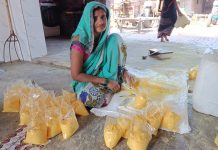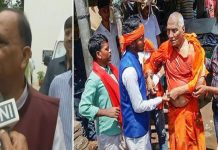WHO: Kochi-based Hussain works with mixed-media. The recurring theme of his work has been the link between nature and humanity. He got his Master of Fine Arts (Graphics) from the Maharaja Sayajiro University of Baroda. He has exhibited at the Galerie Krizinger, Vienna, Grosvener Gallery, London, GallerySKE, Bengaluru, and most recently, Vadehra Art Gallery, Delhi.

What is the one incident that changed or formed your artistic vision?
I was introduced to the Quran at a young age, which familiarised me with the concept of death; death is the brother of life. It was a rather existential childhood development, which formed the basic structure of my perception of life. I began to look outside myself. There should be no obstacle between what is inside and outside. The artist is a bridge that brings together one’s interiority and the life outside.
You grew up in a coastal town, Chandiroor. What part does the sea play in your work?
The sea always features in my paintings. The sky has always been more visible than water. There is a division of spaces in nature that I bring onto canvas. It is a theatre set, with the lines and the beams of lights.
Who is your biggest inspiration?
There are so many. Jyoti Kumar, Bhupen Khakhar, Gulam Mohammad Sheikh, Prabhakaran K and the Mughal miniature artist Basavan.

There is a certain shift from the calm in your earlier works to a chaos in the current ones. What are you trying to convey through the aggression?
Contemporary life is chaotic. We cannot live in a secluded way. The most obvious example is that we live in a time of war. However, our everyday lives are filled with equal amounts of aggression. You see how I depict the body, the woman’s body. That is the violence that is inherent in our lives.
Where does that stem from?
These punished bodies can be local and global. They are tortured, displaced and do not fit into the well polished hypocrisy of urban life. We live with moral armies that love to control different bodies. These armies exist in our homes, in the extreme right wing groups, in gangs belonging to different religious groups. They safeguard the existing system by inflicting punishment. They try to control basic human relationships and love.
Aradhna Wal is a Trainee, Features with Tehelka.
aradhna@tehelka.com











